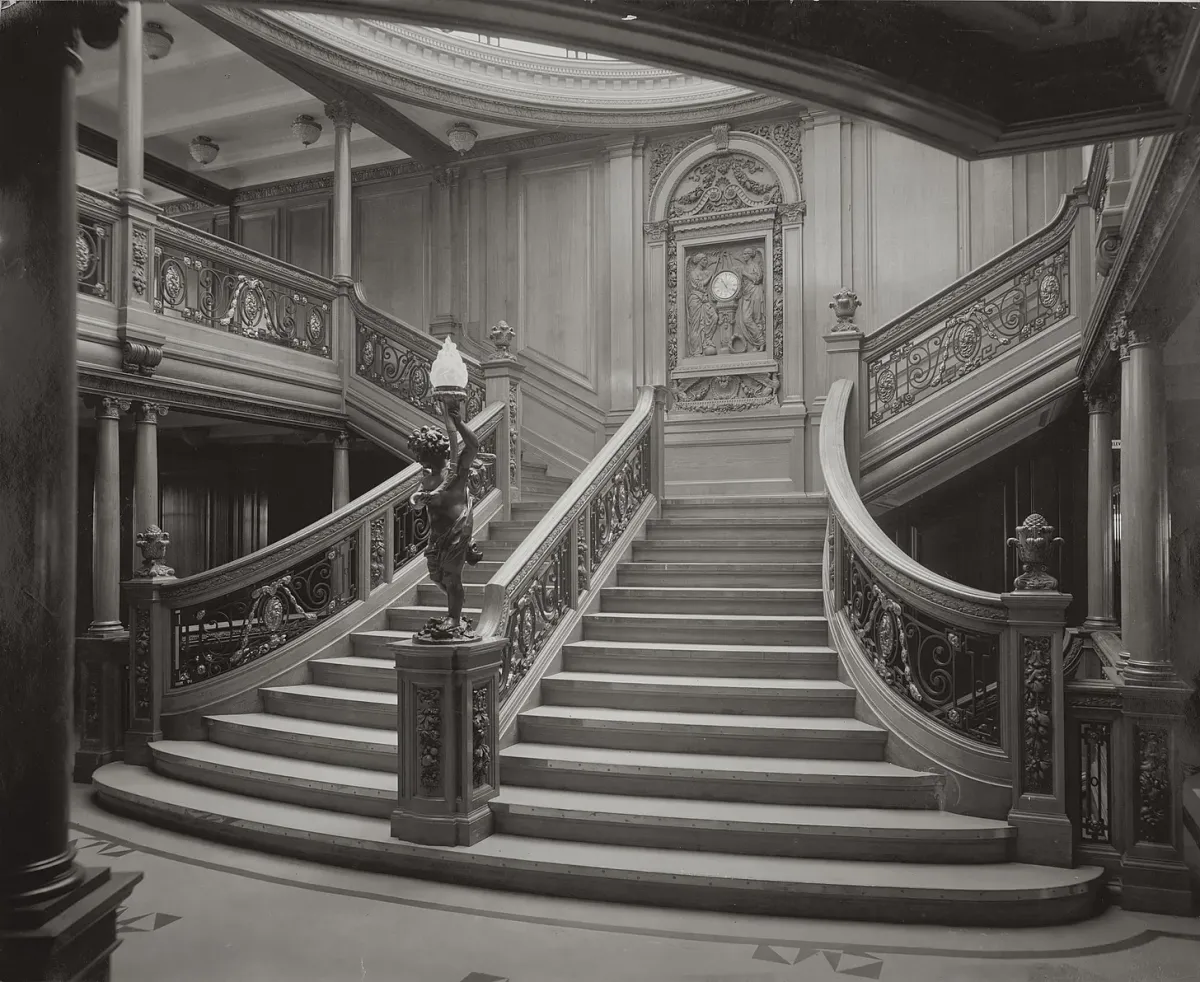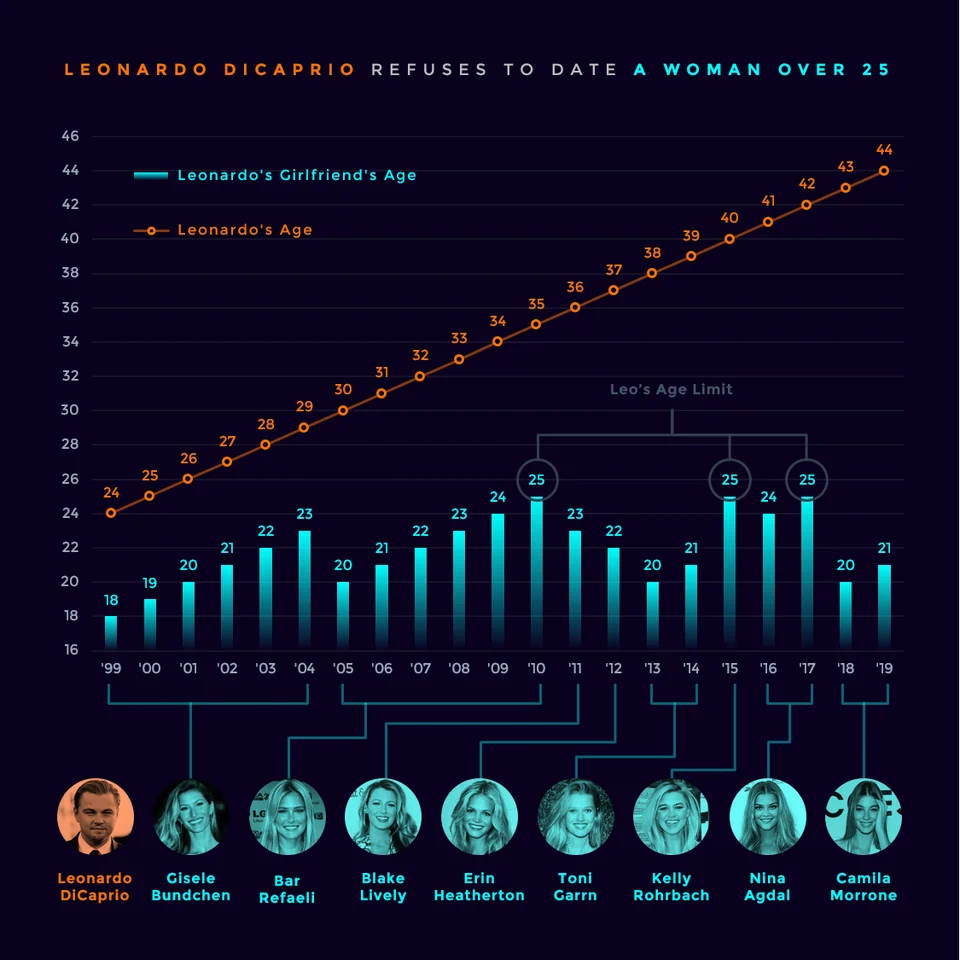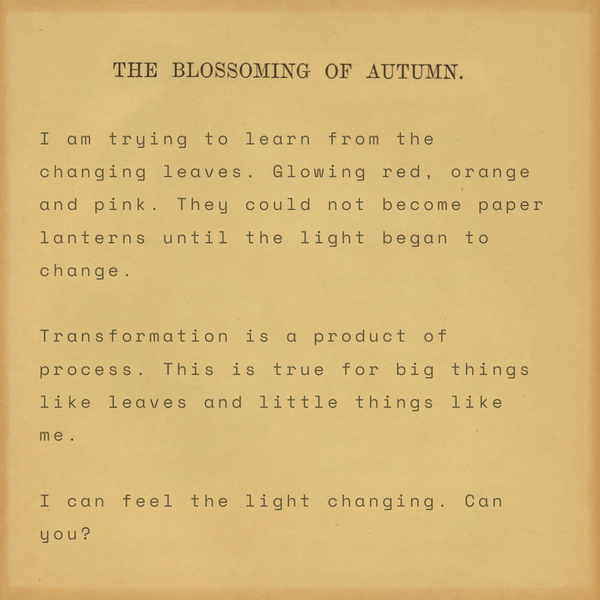Fine, I'll admit it. I like Titanic.
At risk of drowning in a culture hostile to earnest girls, Titanic was a lifeboat

My oldest kid turned fourteen last week. Which is pretty wild. I never get emotional over my kids’ birthdays, but this one has me a little teary-eyed. Suddenly, we’ve only got four years left with her at home. And, I don’t know. I feel like I can still feel the weight of her four year old hand in mine. What happened?
Anyways.
She asked for a Titanic-themed party. She saw it at a friend’s house last summer. It wrecked her in the most glorious way. The way only 12-15 year old girls can be wrecked by sumptuous, sappy love stories. The movie turns 25 this year, so it’s been released in theaters this week. I bought tickets for her and a few friends for her birthday party. Afterwards, they ate pizza sitting around a tablescape that might be my greatest achievement. You can watch me talk about how weirdly proud I am of this whole birthday decor situation here.

When I dropped my daughter off at the movie theater, I felt a little dizzy with time traveling. I remember my mom dropping me off at a movie theater to see Titanic. I was just two months away from turning thirteen when it came out the first time.
Titanic has gotten a lot of hate over the years, but I love it. Or at least I love it on behalf of who I was when I first saw it. A girl who took everything seriously, and could not lighten up, even a little. The late 90s and early 2000s taught me that happily ever after depended on a girl’s ability to leave ruffled earnestness behind for babydoll insouciance. I hated my inability to care less.
But, like teen me, Titanic was unreservedly ardent. It took true love, disaster and the promise of a happy ending as seriously as I did. At risk of drowning in a culture hostile to earnest girls, Titanic became a kind of lifeboat for me. (Or at least a very large floating door.) The first time I saw it, I was still in my seat after the credits stopped and the lights came on, bent over, weeping. I hiccuped for an hour afterward. It felt so good to care.
Happily ever after depended on a girl’s ability to leave ruffled earnestness behind for babydoll insouciance.
Titanic is the John Wick of romance movies - its excess is the point. People complaining about the excess are missing the point.
Critics were right when they said the romance was rich with coincidence and cliche. That’s true. But I guess even the most realistic romance requires some coincidence and cliche. And I’ve got no problem indulging in either on an epic scale.
Rose, played by Kate Winslet, is a first class passenger. She’s engaged to marry a cruel but rich man. Her marriage will save her and her mother from a swift descent into poverty. Jack, played by Leonardo Dicaprio, is a steerage passenger. He’s an artist who won his fare back to America in a hand of cards. They meet when Jack keeps a bereft Rose from jumping from the ship. Rose and Jack fall in love over the course of a few days. She stands up to her mother and fiance. Jack draws her like one of his French girls. The ship sinks. Jack dies while helping Rose live.
The audience knows the story because Rose, now an old woman, is the one telling it. She lived a whole life after Jack died. She got married, had children, and enjoyed a full life. At the end of the movie,* Rose dies in her sleep. Jack is waiting for her, at the top of the Titanic’s Grand Staircase.
* after dropping a treasure into the ocean instead of donating it to help feed the hungry or something
I was as heady with Leo Dicaprio as many girls in those years. I cut his pictures out of my mom’s People magazine. And imagined getting older* and bumping into him in LA somewhere, the non-starlet smart girl who finally caught his eye.
*but not too much older, ahem:

But I didn’t see Titanic three times in theaters and several times a year for the next five years because of Leo. I saw it because of Kate.
When Rose asked Jack to draw her like one of his French girls and then took off her clothes, I remember feeling - relieved.
I’d seen nude scenes in other movies - mostly 80s teen movies rented from Blockbuster and sneaky-watched at a friend’s house. In those movies, the girls were very thin, with very big breasts. They were often being secretly observed by boys, in locker rooms or bedrooms. I’d feel panicked both at the thought of being violated and not looking good enough while being violated.
She wasn’t spied on or inspected, she was drawn carefully.
There was less nudity in 90s and 2000s teen romances, but they still made me worried. The girl caught the boy’s eye when she turned out to be unexpectedly hot in a bikini, or publicly debuted a low-rise, satin-spaghetti strapped makeover. None of the girls looked like me. And that was a problem, because girls existed to be seen and desired, whether they liked it or not.
But Titanic? It was the first time I’d encountered female nudity in a movie where the woman chose her own reveal. She wasn’t publicly debuted and consumed. And she chose how to be seen. She wasn’t spied on or inspected, she was drawn carefully. Jack’s nervousness was also a revelation. Maybe boys could be unsure? Maybe they could be awed? Maybe there was something to being nervous together?
It wasn’t just how she was seen, it was how she looked too. My figure looked so different from the fashionable slim-hipped, small-bum, taut tummy figure that was fashionable. But as my body developed, I was beginning to look something like Kate Winslet. And I thought she looked beautiful.
At least in this movie, I saw that a girl can find and lose love and then keep living.
I remember people scoffing that people don’t fall in love in just a few days. But I didn’t really understand the criticism. Just the year before, I’d gaped at the spectacle of Dicaprio in Baz Lurhman’s Romeo + Juliet. Romeo and Juliet fell in love in a few days too. And nobody rolled their eyes. Some of that had to do with it being Shakespeare, sure. But I couldn’t shake the feeling a lot of it was because both teens died at the end. Fools rushing in deserve to die. At least in this movie, I saw that a girl can find and lose love and then keep living.
There was also a kerfuffle over the fact that Rose is met by Jack after she dies, not her husband. But I loved that too. She chose him first and then the greed of other men took him away from her. Why shouldn’t she get to have him at last? To my “married for all time and eternity” Mormon self, that felt like a transgressive nod to the virtue of female desire and choice.
Not everyone saw what I saw. Plenty of people rolled their eyes at storyline and writing. It was easy enough for me to agree to disagree with those critics. But there was some criticism I couldn’t shake.
In the weeks and months after the movie came out, a lot of the commentary about the movie swirled around Kate Winslet’s weight. Some people said Jack couldn’t get on the door because she was too fat. And anonymous sources claimed that James Cameron was furious Winslet didn’t lose weight before filming began. The scrutiny continued long after Titanic. Winslet said that during those years, the first question her agent was asked by people thinking about casting her was,“How’s her weight?”
The body-shaming deeply affected Winslet. It affected me too. Every criticism I read about Winslet, I applied to my own developing body.
If you haven’t read this excellent piece from Anne Helen Petersen on The Millenial Vernacular of Fatphobia, please do.
Still. The movie served as a kind of proof of the possibility of beauty for me through high school. I’d try on another pair of low-rise jeans that simply couldn’t work with my body. I hated how I looked. But then remember Rose’s shape and think, maybe I wasn’t desirable in 2001, but I was desirable in another era. My hips and ass were beautiful too, just not in the context I was given. Both Winslet and I simply suffered from being miscast in time. A sad fate, but earnest girls know how to survive sad fates.
There’s so much more to desire than being the object of it. And desire and objectification don’t have to exist together.
It took more growing up to realize beauty standards are sinister. That I didn’t have to change, the context did. That there’s so much more to desire than being the object of it. And that desire and objectification don’t have to exist together. I am not sure how long it would have taken me to learn that if I’d grown up in the social media landscape we’re raising our daughters in now. Their existence involves so much more exposure than mine did. I wonder how many of our girls still feel ashamed of being earnest?
In an algorithmic world, past moments are data and future moments are sequenced. Nothing is unseen and nothing is chosen. - War of the Worlds
By the time I got to college, I’d stopped watching Titanic. I pretended I outgrew it. It was time to care less.
Many people outgrew Titanic alongside me. And for its 25th anniversary, a lot of articles are about how the movie is a lurching artifact from a less sophisticated time.
“Titanic has a lot of weak points and its overall message of “true love” won’t resonate with modern audiences,” - Screenrant
An “overall message of true love” lacking resonance seems to have more to do with the idea of true love than how it is depicted in Titanic. I am not sure what true love really means. But I guess in the context of Titanic it means loving someone so much you’d give up material things and cultural expectations to keep them. And I wonder when we got too modern for that?
I get why older movies with true love stories about the inviolability of traditional gender roles don’t resonate with modern audiences. They don’t resonate with me either. And I understand that not everyone wants romantic love. Romantic love is not for everyone! But it’s always been for me. Or maybe it’s better to say I’ve always been for romantic love. And for those that do want romantic love.…why wouldn’t an overall message of true love, especially if it was done well, touch a cord?
What does resonate with modern audiences?
Like…why is it ridiculous to find love in a few days on a doomed ship, but sensible to try to find love in a few hundred swipes on a dating app?
I’ve been listening to the podcast, Land of the Giants: Dating Games. It’s about the “the evolution of the multi-billion dollar dating app industry.” Tech companies scaling through the gamification of romance. Shareholders making money off each failed night out. Coincidence, cliche and surveillance coded into a compound we call Algorithm. It’s bleak stuff.
I don’t know. Maybe I am miscast in time. I’m the wrong shape for traditional or modern narratives, I guess.
Anyways, I am coming back around to Titanic. I understand it’s flaws. I know it’s not a good movie. But I think it might be a grand movie.
I love this from Roger Ebert’s 1997 review of the movie,
…the ship calls from its grave for its story to be told, and if the story is made of showbiz and hype, smoke and mirrors--well, so was the Titanic. She was “the largest moving work of man in all history,” a character boasts, neatly dismissing the Pyramids and the Great Wall. There is a shot of her, early in the film, sweeping majestically beneath the camera from bow to stern, nearly 900 feet long and “unsinkable,” it was claimed, until an iceberg made an irrefutable reply.”
We all sink. And the only way we survive the ache of knowing we’re doomed is through smoke and mirrors. Isn’t that all any promise that depends on the future is? Maybe it’s okay to make and watch grand movies once in awhile to help ease the pain.
I haven’t watched Titanic since high school. I thought about watching it before writing this piece, but couldn’t bring myself to do it. Maybe because it’s too painful to remember the little girl who clung to it in the cold waters of her adolescence. Or maybe because I know, despite all my growing up and knowing better, I’ll still find myself bent over and crying at the end.
I’ve never been able to care less. I still take true love, disaster and the promise of a happy ending seriously. I still hope, after everything is done, love will be waiting at the top of a grand staircase.
The balloons from Margaret’s party were still floating above our kitchen table last night. I sat under them as I read about a shooting that happened yesterday afternoon at a Denver high school a short bike ride away from us. And then the shooting that happened last night in Michigan. So many dead children. Their parents can still feel the weight of their children’s hands, but they can’t reach out to hold them. Our culture is hostile to all children, not just the earnest ones. Why can’t we get people in power to care?




